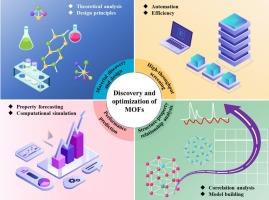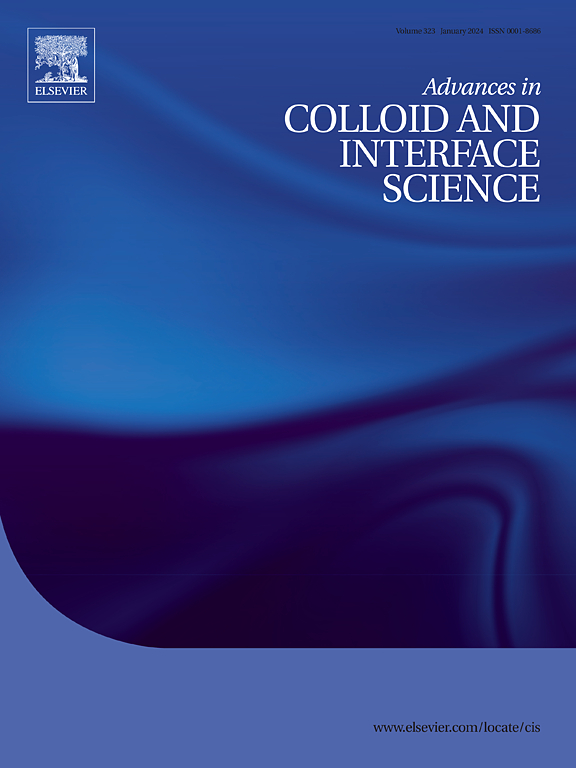通过机器学习加速发现和优化金属有机框架材料
IF 19.3
1区 化学
Q1 CHEMISTRY, PHYSICAL
引用次数: 0
摘要
金属有机骨架(MOFs)作为一类新型多孔材料,在气体储存、分离、催化等领域有着广泛的应用,引起了人们的广泛关注。传统的mof合成和优化方法往往受到耗时和高成本的阻碍。随着机器学习(ML)技术的快速发展,人们提供了创新的解决方案来加速mof的设计、筛选和性能预测。本文系统综述了机器学习在MOF研究中的应用进展,涵盖了从基础理论到实际实现的多个方面。首先介绍了常用的机器学习算法,包括回归分析、分类算法、聚类分析、深度学习和强化学习,并讨论了数据采集和预处理的方法,以及它们对模型性能的影响。它还检查了模型评估度量和增强模型可解释性的策略。随后,本文重点介绍了机器学习如何通过材料设计、高通量筛选、结构-性能关系分析和性能预测来推动MOF研究的进展。最后,系统地指出了当前面临的挑战和未来的发展方向,强调了跨学科合作的重要性。本文的重要价值在于将最新的机器学习技术与MOF研究进展相结合,为研究人员提供一个全面的视角来理解机器学习在加速新材料开发中的作用。此外,本文对于促进学术界与工业界的交流,指导实验科学家更有效地利用计算工具进行mof相关研究,从而加速新材料的开发,推进绿色化学和技术,满足日益增长的能源和环境可持续性需求具有重要意义。本文章由计算机程序翻译,如有差异,请以英文原文为准。

Accelerating the discovery and optimization of metal-organic framework materials via machine learning
As a novel class of porous materials, metal-organic frameworks (MOFs) have attracted considerable attention due to their extensive applications in gas storage, separation, catalysis, and other fields. Traditional methods for the synthesis and optimization of MOFs are often hindered by time-consuming processes and high costs. With the rapid advancement of machine learning (ML) technology, innovative solutions have been provided to accelerate the design, screening, and performance prediction of MOFs. This paper systematically reviews the progress of ML applications in MOF research, covering multiple aspects from fundamental theories to practical implementations. It first introduces commonly used ML algorithms, including regression analysis, classification algorithms, clustering analysis, deep learning, and reinforcement learning, and discusses methods for data acquisition and preprocessing, as well as their impact on model performance. It also examines model evaluation metrics and strategies for enhancing model interpretability. Subsequently, the paper focuses on how ML can drive the progress of MOF research through material design, high-throughput screening, structure-property relationship analysis, and performance prediction. Finally, it systematically identifies the current challenges and future development directions, emphasizing the importance of interdisciplinary collaboration. The significant value of this review lies in integrating the latest ML technologies with advancements in MOF research, providing researchers with a comprehensive perspective to understand the role of ML in accelerating the development of new materials. Additionally, this paper is of great significance in promoting communication between academia and industry, guiding experimental scientists to more effectively utilize computational tools for MOF-related research, thereby accelerating the development of new materials, advancing green chemistry and technology, and meeting the growing demands for energy and environmental sustainability.
求助全文
通过发布文献求助,成功后即可免费获取论文全文。
去求助
来源期刊
CiteScore
28.50
自引率
2.60%
发文量
175
审稿时长
31 days
期刊介绍:
"Advances in Colloid and Interface Science" is an international journal that focuses on experimental and theoretical developments in interfacial and colloidal phenomena. The journal covers a wide range of disciplines including biology, chemistry, physics, and technology.
The journal accepts review articles on any topic within the scope of colloid and interface science. These articles should provide an in-depth analysis of the subject matter, offering a critical review of the current state of the field. The author's informed opinion on the topic should also be included. The manuscript should compare and contrast ideas found in the reviewed literature and address the limitations of these ideas.
Typically, the articles published in this journal are written by recognized experts in the field.

 求助内容:
求助内容: 应助结果提醒方式:
应助结果提醒方式:


